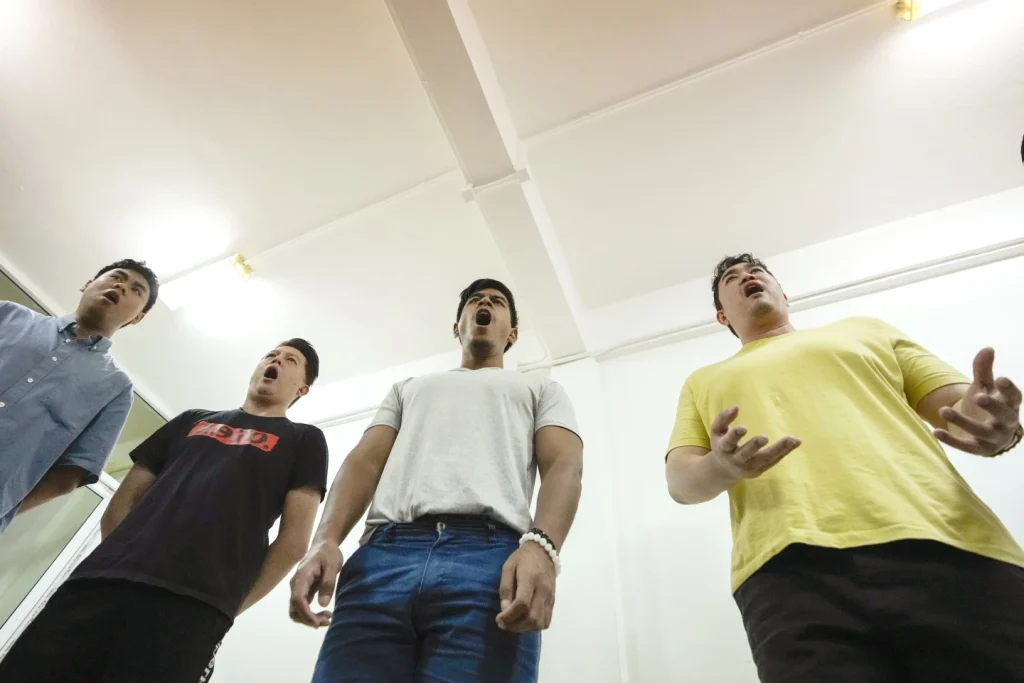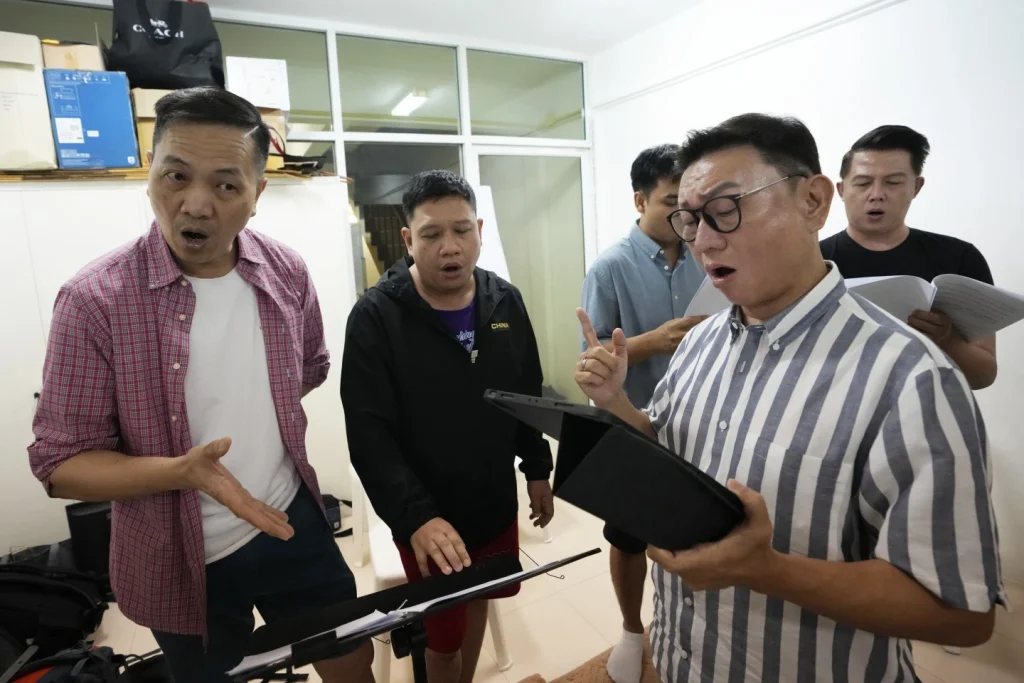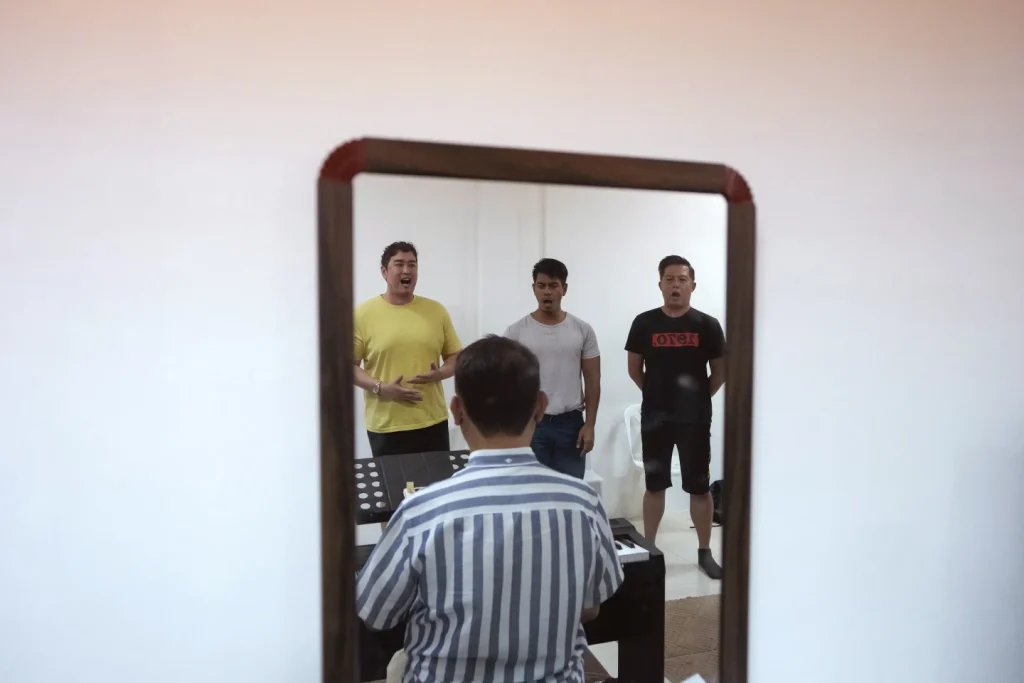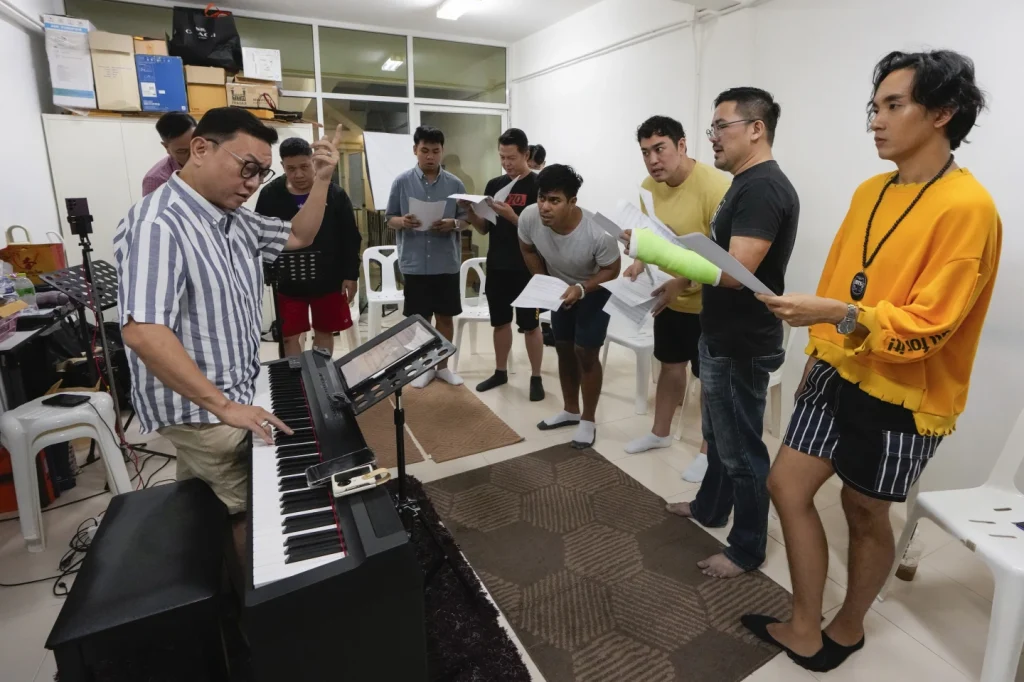The recent developments in Thailand regarding the legalization of same-sex marriage have sparked a significant amount of interest and discussion both within the country and around the world.
The potential passing of a landmark legislation allowing members of the LGBTQ+ community to get married has brought hope and joy to many individuals who have long awaited the opportunity to formalize their relationships.
One such couple, Naphat Krutthai and Rasithaya Jindasri, has been in a committed relationship for eight years, and they are now considering the possibility of getting married.
Their excitement and anticipation were palpable as they browsed through multi-colored garments in a clothing shop in Siam Square, a bustling commercial hub in Bangkok.
Their eagerness to formalize their union reflects the profound significance of this legislative change for countless individuals across the country.
The proposed bill seeks to amend the Civil and Commercial Code by replacing the terms “men and women” and “husband and wife” with “individuals” and “marriage partners.”
This crucial amendment is a significant step towards granting LGBTQ+ couples the same rights and recognition as heterosexual couples.
Prime Minister Srettha Thavisin emphasized that the legislation aims to provide LGBTQ+ couples with the “exact same equal rights” as their heterosexual counterparts, marking a pivotal moment in the fight for equality and inclusion.

If the bill is passed, Thailand will become the first country in Southeast Asia to legalize same-sex marriage, joining the ranks of Taiwan and Nepal as the only Asian countries to have taken this progressive step.
The potential impact of this legislation extends far beyond the borders of Thailand, serving as a beacon of hope and inspiration for LGBTQ+ communities in neighboring countries and around the world.
The significance of this legislative development cannot be overstated. It represents a monumental shift towards greater inclusivity, equality, and recognition of the rights of LGBTQ+ individuals.
The potential passing of this bill is a testament to the tireless advocacy and activism of countless individuals and organizations who have long fought for the rights of the LGBTQ+ community.
Furthermore, the legalization of same-sex marriage in Thailand has the potential to have far-reaching social and cultural implications.
It sends a powerful message of acceptance and affirmation, challenging societal norms and prejudices that have long marginalized LGBTQ+ individuals.
This legislative change has the potential to foster a more inclusive and tolerant society, where individuals are free to love and marry whomever they choose, regardless of their gender or sexual orientation.
As the world eagerly awaits the outcome of the parliamentary debate on the bill, it is important to recognize the profound impact that this legislation could have on the lives of LGBTQ+ individuals in Thailand and beyond.
The potential passing of this bill represents a significant milestone in the ongoing struggle for LGBTQ+ rights and equality, and it serves as a powerful reminder of the importance of legislative change in shaping a more just and inclusive society.
In conclusion, the proposed legalization of same-sex marriage in Thailand is a historic and transformative development that has the potential to bring about profound social, cultural, and legal changes.
The passing of this legislation would mark a significant victory for LGBTQ+ rights and equality, and it would send a powerful message of acceptance and affirmation to individuals and communities around the world.

As Naphat and Rasithaya eagerly plan their potential wedding, their joy and hope symbolize the collective aspirations of countless individuals who have long awaited the opportunity to love and marry freely and openly.
Thailand has long been regarded as a beacon of acceptance and inclusivity, particularly in the context of LGBTQ+ rights.
However, beneath the surface of vibrant Pride Parades and public displays of support, the reality for LGBTQ+ individuals in Thailand is far more complex.
This essay will delve into the challenges faced by LGBTQ+ individuals in Thailand, the ongoing struggle for legal recognition, and the advocacy efforts aimed at fostering greater acceptance within the society.
The case of Naphat, also known as “Jim,” and Rasithaya epitomizes the plight of many LGBTQ+ couples in Thailand. Despite their enduring relationship spanning eight years, their union lacks legal recognition.
Naphat’s poignant statement underscores the profound impact of this legal void on their lives. The absence of a marriage certificate deprives LGBTQ+ couples of essential benefits, including healthcare and inheritance rights, which are taken for granted by heterosexual couples.
This underscores the urgency of legal reform to address the disparities faced by LGBTQ+ individuals.
While Thailand garners international acclaim for its Pride Parades and public support for LGBTQ+ causes, the lived experiences of LGBTQ+ individuals paint a more nuanced picture.
Nattipong Boonpuang’s testimony sheds light on the pervasive challenges faced by LGBTQ+ individuals, including the prevalence of negative comments and discrimination, both in physical and digital spaces.
Despite the outward appearance of acceptance, the reality for many LGBTQ+ individuals in Thailand is marked by societal misconceptions and legal discrimination.
In response to these challenges, organizations such as the Bangkok Gay Men’s Chorus have emerged as beacons of hope and catalysts for change.

The chorus, founded with the dual purpose of celebrating music and advocating for LGBTQ+ acceptance, exemplifies the resilience and determination of the community.
Vitaya Saeng-Aroon’s assertion that while attitudes have improved, substantial obstacles persist, underscores the ongoing struggle for genuine acceptance and legal reform.
The struggle for legal recognition and societal acceptance of LGBTQ+ rights in Thailand is a multifaceted and ongoing endeavor.
While the public image of Thailand as a progressive and inclusive society prevails, the experiences of LGBTQ+ individuals reveal a more complex reality.
The narratives of individuals like Naphat, Rasithaya, Nattipong, and the members of the Bangkok Gay Men’s Chorus underscore the urgent need for comprehensive legal reforms and societal transformation.
Only through sustained advocacy, dialogue, and legal reform can Thailand truly live up to its reputation as a bastion of LGBTQ+ rights and inclusivity.
The ongoing struggle for marriage equality in Thailand has been a topic of significant debate and contention.
The sentiments expressed by Vitaya, emphasizing the desire for fair treatment rather than special privileges, encapsulate the fundamental essence of the LGBTQ+ community’s plea for recognition and equality.
It is imperative to acknowledge that the LGBTQ+ community seeks parity in rights and treatment, not an elevated status above others.
The recent developments within the Thai Parliament regarding legal amendments to facilitate marriage equality or civil unions underscore the complexities and challenges inherent in this endeavor.
The failure of proposed bills to pass before the dissolution of Parliament for elections last year reflects the arduous path toward achieving legal recognition for LGBTQ+ couples.
However, the optimism expressed by Vitaya regarding the potential approval of the new draft bill signifies a glimmer of hope for the community’s long-awaited acknowledgment through legislation.
The prominence of marriage equality as a pivotal issue during the recent general election, with both the ruling party Pheu Thai and the opposition’s Move Forward engaging in discussions, underscores the growing significance of this matter within the political landscape. T
he apparent general support for the latest bill is a positive sign, albeit one that necessitates thorough parliamentary deliberation before potential approval and subsequent endorsement by King Maha Vajiralongkorn.

The government’s contemplation of amending the pension fund law to recognize all couples represents a crucial step toward inclusivity and equality.
While this change may hold profound significance for those directly affected, it is noteworthy that it is likely to have a minimal disruptive impact on Thai society as a whole.
This sentiment is echoed by Khemthong Tonsakulrungruang, a law lecturer at Bangkok’s Chulalongkorn University, who highlights the evolving attitudes toward marriage and the gradual alignment of legal statutes with established cultural and religious ceremonies within the LGBTQ+ community.
The evolving landscape of societal perceptions and practices surrounding marriage, as articulated by Tonsakulrungruang, underscores the imperative for legal frameworks to reflect and accommodate these shifts.
The recognition of cultural and religious ceremonies between LGBT individuals, despite lacking legal validation, has become increasingly prevalent.
The impending legislative changes are poised to formalize and codify these existing societal transformations, thereby aligning legal statutes with the evolving fabric of Thai society.
In conclusion, the ongoing discourse surrounding marriage equality in Thailand embodies a pivotal juncture in the nation’s social and legal evolution.

The aspirations of the LGBTQ+ community for equitable treatment and recognition are emblematic of a broader societal shift, one that necessitates the harmonization of legal frameworks with evolving cultural and social norms.
As the nation navigates this critical juncture, it is imperative for policymakers and stakeholders to heed the call for inclusivity and equality, thereby fostering a more just and equitable society for all.
